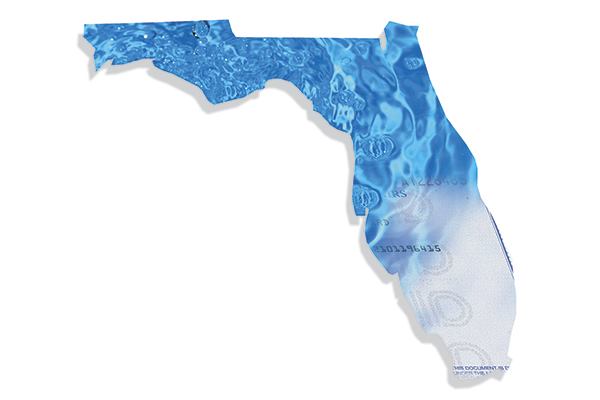The Florida Swimming Pool Association took dozens of industry members to the state’s capital in March to champion three bills.
As part of FSPA’s annual Legislative Days, pool professionals convened in Tallahassee to meet with lawmakers about easing regulations that hamper construction.
Among one of the more pressing issues is the state’s coastal setback zones. These areas restrict building structures that could interfere with a beach dune system or turtle nesting sites. Contractors who want to build within proximity of these ecosystems must get a permit from the state’s Department of Environmental Protection.
That could take years and cost thousands of dollars.
“Quite frankly, the guys who are building pools along the coast are hiring lawyers to pull the permits for them,” said Brian Kelly, president of Shamrock Pool Service in North Lauderdale.
That’s why contractors are pushing for the passage of Senate Bill 956. Sponsored by Sen. Aaron Bean (R-Jacksonville), the proposed legislation would clarify that swimming pools do not extend the line of existing construction. The permitting process would then by handled by local authorities for a faster turnaround.
It would also cut application costs considerably. A general permit costs half that of an administrative permit through the DEP, which charges up to $1,000.
A second bill, which passed the House, also seeks to hasten permitting. SB 1106 impacts commercial pool construction. The bill by Sen. Wilton Simpson (R-Trilby) would require builders to first apply for an operating permit from the Department of Health before applying for a building permit. That would give health officials an opportunity to review plans before contractors break ground, limiting the risk they’d be denied an operating permit after the facility was built.
If passed, both bills would go into effect in July.
Finally, there’s a proposal on the Senate floor to offer a sales tax holiday on Energy Star-certified products. SB 1076 would create a three-day tax break in September on air conditioners, dishwashers and refrigerators, among other appliances boasting the Energy Star label.
The problem: It doesn’t include variable-speed pool pumps, which earned the coveted Energy Star seal of approval last year, signifying that they meet or exceed the U.S. Environmental Protection Agency’s energy-efficiency guidelines.
“We felt like it was just an oversight,” said Rob Sanger, president of Sarasota-based Galaxy Pools. “I don’t think they realized that the energy savings of a variable-speed pump blows away that of a refrigerator.”
Lawmakers are in favor of including pumps into the package – that is, except for one.
One politician pushed back, saying swimming pools were not a necessity and therefore shouldn’t be eligible for a tax savings. But pool professionals were quick to point out that air conditioners aren’t a necessity either.
“My reply was, ‘Are we in it for class warfare or are we in it for energy savings?’” Sanger said.
If passed, consumers would be eligible for the savings from Sept. 19-21.




